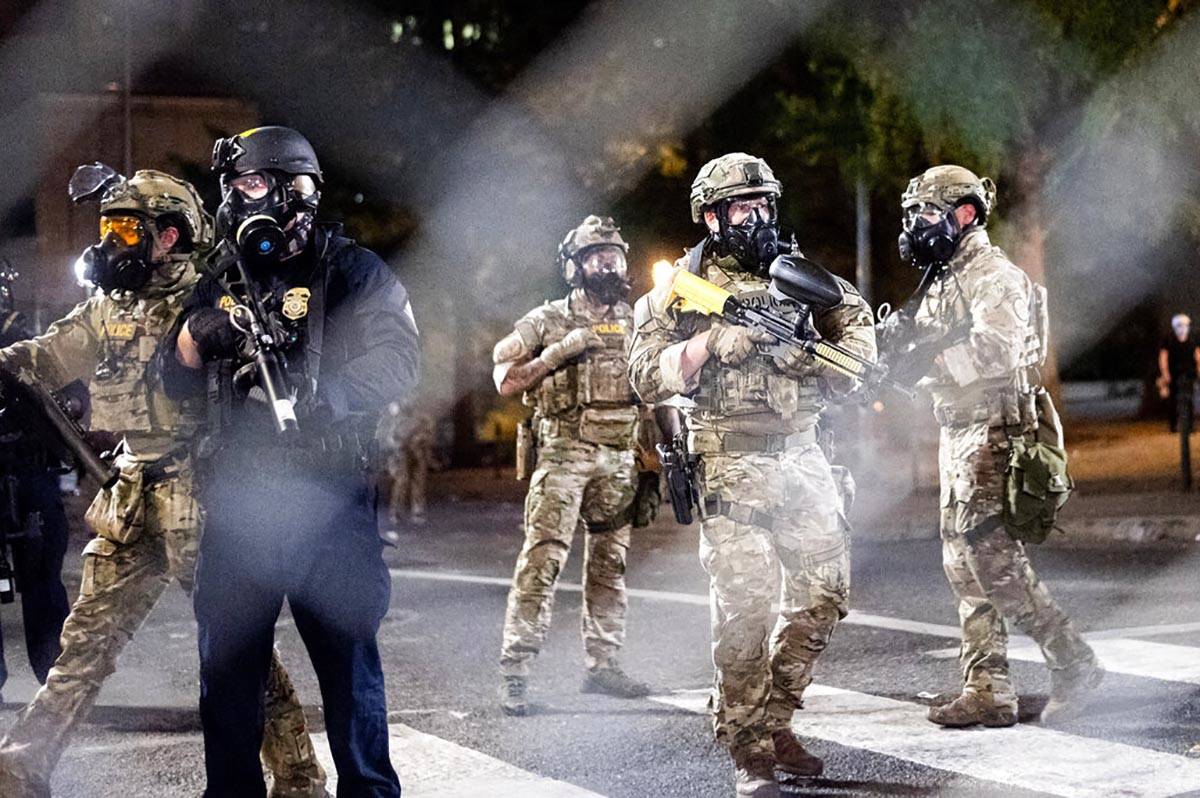MEGAN McARDLE: The awkward necessity of police and policing
I can’t exactly recommend that you spend half an hour watching video of Portland protesters pulling a man from his truck and assaulting him. It’s unpleasant viewing even before the beating starts. But I will say there’s value in watching it, because it’s not just evidence of a crime, but also of the complicated relationship that some radicals have with police and policing.
In the relevant portion of the video, a man’s truck is surrounded by protesters. He seems to be trying to help a woman who later appears on-screen, using her hand to try to shield her head from an unseen assailant. A few seconds later, as she walks away moaning, another woman tackles her to the ground.
As matters escalate, the driver guns his motor in neutral to clear the way in front of him, then inches forward as people attack the truck from the sides. Eventually, as he pulls free a bit, the driver accelerates and someone who was apparently grabbing the passenger-side door handle loses their grip and falls to the side.
Later on, we can see the driver being forced away from the truck by protesters, at least one of whom is wielding a stick; shoved to the ground (twice, for he tries to get up); and ordered to stay there until the cops come. Later still, we see the assault: One of those surrounding him — a person wearing a “Security” jersey — becomes enraged when the driver says he wasn’t trying to hurt anyone, but just trying to get away. “Security” starts hitting the driver, is pulled back by others, then returns with a running start, kicking the driver so hard in the head that he is apparently knocked unconscious.
One obvious point to make is that for all the calls to defund or abolish police departments, protesters still want the police to show up and make arrests when they feel endangered. Conservatives have made that point, with an implicit charge of hypocrisy — though of course, it’s hardly hypocritical to oppose police brutality while also thinking that policing is necessary.
A more trenchant criticism is that these videos show exactly the kind of police abuses the protesters are supposed to be out there fighting against. The comparison holds all the way to the character of the initial offense — it starts as a traffic stop, escalates to punitive restraint for resisting arrest and culminates in assault — and to “cops” who seem eager to restrain an outsider but appear less interested in bringing other protesters to justice for the attack on the woman that may have precipitated later events.
One might even argue that we should expect nothing else when the police cede the streets, as they have in parts of Portland, surrendering the state’s monopoly on the legitimate use of force.
“At some point,” says Peter Moskos of New York’s John Jay College of Criminal Justice, “society needs to accept that there is an element of repression — social control — in policing. At some point there are people who need to be policed.” And at some point in the Portland videos, you realize you are watching anti-police protesters discover that fact.
Someone, after all, must ensure that reckless drivers don’t endanger others, that anger doesn’t boil over into assault and so forth. If the police abdicate, others will step in, as we see both in these videos and in Seattle’s short-lived Capitol Hill Autonomous Zone, where police allowed anarchists and others to take over six city blocks. As Moskos told me, “The need for security will become a vacuum, and it will be filled with a combination of thugs and extortion artists and well-intentioned people.” Needless to say, all will operate without any kind of broader democratic accountability.
Moskos said this well before the events in Portland, during a general discussion of crime and police reform. His words seemed prophetic, as did a corollary: The well-intentioned people may have grave difficulty restraining those with other intentions. In fact, they seem to do an even worse job than the mixed results so far obtained by the well-intentioned citizens who have periodically tried to restrain the abusive among our official police forces.
That’s a corollary worth keeping in mind as slogans such as “abolish the police” and “defund the police” take hold. No one who has seen what happened to Eric Garner or George Floyd can question the urgent need for police reform. But while we’re reforming, let’s remember that our ultimate goal isn’t anything as simple as “less policing”; rather, it is streets and cities where every American feels safe.
Follow Megan McArdle on Twitter, @asymmetricinfo.






















